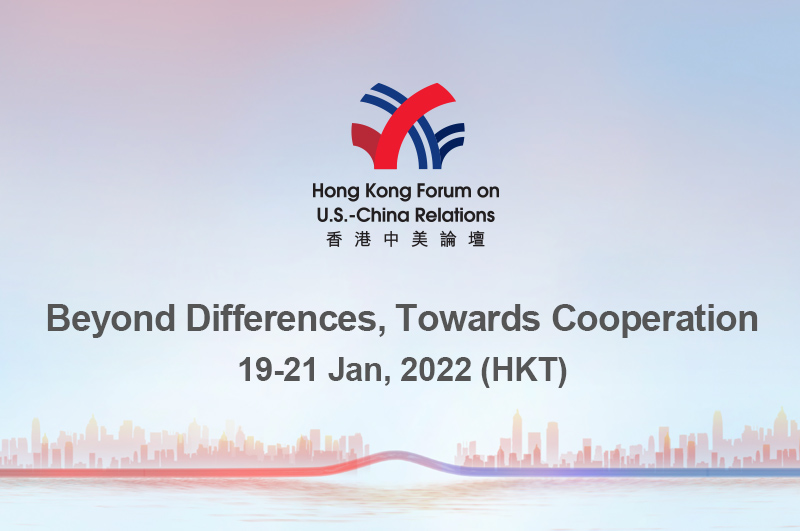Brian Wong, Assistant Professor in Philosophy and Fellow at Centre on Contemporary China and the World, HKU and Rhodes Scholar
Jan 18, 2022
Mutual unfavourability between the populaces of China and the United States are on the rise, but a moratorium to Sino-American hostility at large cannot occur without efforts from citizens of both countries.

Jan 11, 2022
Hong Kong Forum 2022 on U.S.-China Relations
Jan 11, 2022
2022 is rife with both opportunities and challenges for the U.S.-China relationship.
Andrew Sheng, Distinguished Fellow at the Asia Global Institute at the University of Hong Kong
Xiao Geng, Director of Institute of Policy and Practice at Shenzhen Finance Institute, Chinese University of Hong Kong
Jan 07, 2022
The year 2022 will mark 50 years since US President Richard Nixon traveled to China to meet with Communist Party of China Chairman Mao Zedong and Chinese Premier Zhou Enlai – a major step toward restoring relations after decades of estrangement and hostility. A half-century later, the progress they launched has been all but lost, and US President Joe Biden is partly to blame.
Zhang Yun, Professor, School of International Relations, Nanjing University
Jan 07, 2022
Americans like to think the United States won the Cold War and they nostalgically believe the same approach will work with China. It won’t. In fact, healthy China-U.S. relations depend on Washington’s moving away from the myth.

Wang Jisi, Professor at School of International Studies and Founding President of Institute of International and Strategic Studies, Peking University
Jan 07, 2022
High-level dialogues in 2021 between China and the United State clarified their positions. Now it’s imperative that the two rivals avoid a new cold war by engaging in substantive working-level talks.
Su Jingxiang, Fellow, China Institutes for Contemporary International Relations
Jan 03, 2022
Containment of China is a long-term U.S. strategy — one that continues to expand. Now guided by the Biden administration’s National Security Strategy, which was released in March 2021, a wide range of government departments are formulating anti-China policies. They are not going to stop.

Xiao Bin, Deputy Secretary-general, Center for Shanghai Cooperation Organization Studies, Chinese Association of Social Sciences
Jan 03, 2022
China and Russia may be forced to seek a new systemic equilibrium, with the result being two international camps. This could lead to a new cold war and subject other nations to unpredictable security costs.

Xiao Bin, Deputy Secretary-general, Center for Shanghai Cooperation Organization Studies, Chinese Association of Social Sciences
Dec 29, 2021
During their recent virtual summit, the presidents of China and Russia China had plenty of reason to discuss what to do about their respective external threats. China’s Foreign Ministry said it would rev up coordination between the two in search of a strategic counterbalance.

Yan Xuetong, Distinguished Professor, Tsinghua University
Dec 28, 2021
Strategic competition between China and the United States should be characterized not as a new cold war but as an uneasy peace. Shooting is not likely to break out, but the two countries will remain in dread of each other in the coming decade.
Back to Top

- China-US Focus builds trust and understanding between the U.S. and China through open dialogue among thought leaders.
- Our Offerings
- Topics
- Videos
- Podcasts
- Columnists
- Research Reports
- Focus Digest
- Stay Connected
-
Thanks for signing up!
- Get the latest stories from China-US Focus weekly.